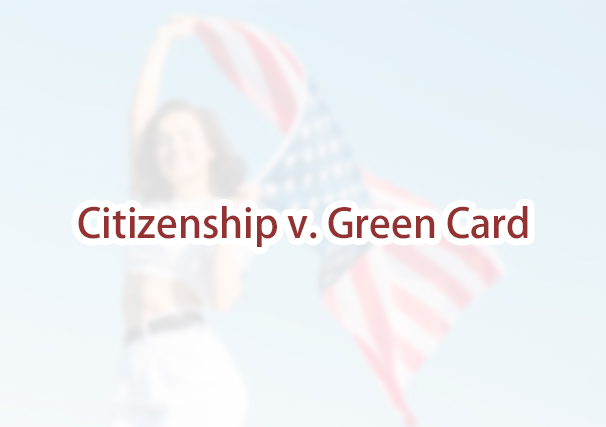
Question: I have been a U.S. lawful permanent resident (a green card holder) for a few years. I am now eligible to apply for U.S. citizenship. What is the difference between being a U.S. citizen and a U.S. lawful permanent resident?
Answer: Before applying for U.S. citizenship, you should consider all of the costs and benefits of becoming a U.S. citizen. Below are some of the key differences between the rights of U.S. citizens and green card holders.
1. Voting: Only U.S. citizens can vote in U.S. elections. Permanent residents (green card holders) cannot vote in U.S. elections. In fact, pursuant to the Illegal Immigration Reform and Immigrant Responsibility Act of 1996, a noncitizen who attempts to vote in a federal election can face fines, imprisonment, and even deportation.
2. Family immigration: U.S. citizens can apply for more types of relatives to immigrate to the U.S. than permanent residents. A permanent resident can apply for his or her spouse and unmarried children to obtain U.S. green cards. A U.S. citizen may apply for each of the following family members to obtain U.S. green cards: (1) fiancé(e), (2) spouse, (3) children (unmarried and married), (4) parents, and (5) siblings.
3. Time outside the U.S.: As a green card holder, if you spend too much time outside the U.S., you may be at risk of losing your permanent resident status. For example, if you plan to leave the U.S. for longer than one year, you must have a reentry permit to return to the U.S. If you do not have a reentry permit, you will have to apply for an SB-1 Returning Resident Visa. If this application is unsuccessful, you might lose your green card status.
In contrast, a U.S. citizen may leave the U.S. for an indefinite period without jeopardizing his or her citizenship status. A U.S. citizen who leaves the U.S. will never lose his or her citizenship status simply for remaining abroad for an extended period.
4. Risk of deportation: Permanent residents who commit certain crimes risk losing their green card status and being deported after serving time in a U.S. prison. U.S. citizens who commit serious crimes never face the risk of deportation.
5. Renewing proof of status: A lawful permanent resident must apply to renew his or her green card every 10 years. A permanent resident does not lose permanent resident status simply because his or her green card has expired. However, if a permanent resident’s green card has expired, he or she may have difficulty renewing a driver’s license, applying for loans, traveling outside the U.S., or proving that he or she is authorized to work in the U.S. A U.S. citizen does not have any similar restriction.

ImmiFree.Law is The Harrison Law Firm P.C.’s online platform to make the family immigration and naturalization process more efficient, accurate, and affordable. Baya Harrison, Esq. is an attorney licensed in New York, Florida, and California. Attorney Harrison has helped numerous individuals and families navigate the U.S. immigration process, specifically family-based petitions and naturalization.